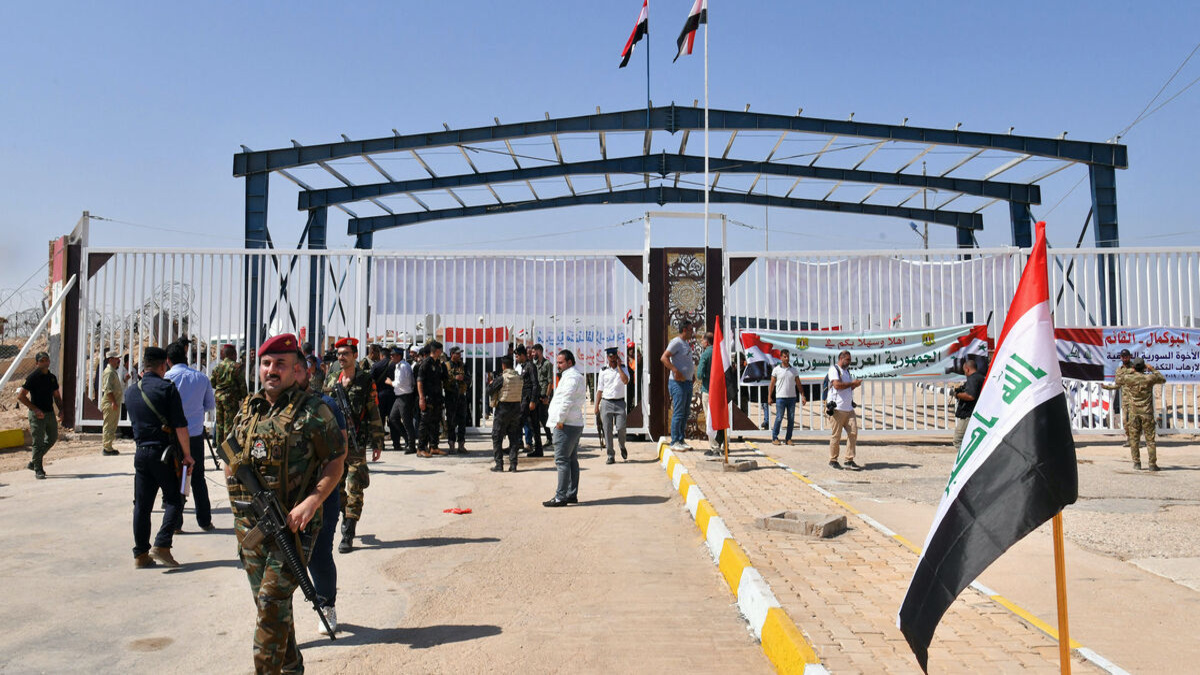 https://images.app.goo.gl/gxoTSwwXLZgTWeUF7
https://images.app.goo.gl/gxoTSwwXLZgTWeUF7
The Pentagon reaffirmed its denial on Thursday that US soldiers fighting the Islamic State group have taken action to deny the militias supported by Iran access to a crucial border crossing from Iraq into Syria. US Air Force Brig. Gen. Pat Ryder, the Pentagon’s press secretary, told journalists that recent news reports in Arabic-language media making such claims were “false” and that US soldiers are not responsible for maintaining security on the border between Iraq and Syria. According to Ryder, “I’m not tracking any significant shift in forces as it pertained to the defeat ISIS mission in Syria,” Ryder responded to a query from Al-Monitor on Thursday. Our company doesn’t offer border security. The Iraqi government has that responsibility, he continued.
The chief commander of the US-led coalition troops likewise denied the claims before the Pentagon issued its rejection. “Except for Daesh [IS], the alliance is not ready for military actions to cut off anyone. We continue to concentrate on Daesh, US Army Maj. Gen. Matthew McFarlane said to reporters on Wednesday during a phone briefing from Baghdad.
Why it’s Important : The Islamic Revolutionary Guard Corps (IRGC) of Iran’s Quds Force supports militias in Syria with the flow of personnel and weapons over the Qaim-Albukamal road. Iran backs the government of Bashar al-Assad in Syria, but in recent years it has pushed to transfer sophisticated weaponry into the country in what US and Israeli authorities have perceived as a purposeful attempt to put Israel in danger. 2020 saw the withdrawal of American personnel from Al-Qaim and the full transfer of authority of the region to Iraqi security forces amid a broader US drawdown following the territorial defeat of IS just a few miles across the border in eastern Syria.
On the Syrian side of the bridge, there is a significant presence of militias with ties to the IRGC and other pro-Assad organizations near Albukamal. The region is bordered by Syrian forces supported by the US more than a hundred miles to the southwest at the highly sought-after Al-Tanf border crossing along the Baghdad-Damascus route, and Kurdish-led fighters across the Euphrates River to the northeast. The Al-Qaim road is a tempting choice for Iran-backed factions looking to move weapons and manpower into Syria because of the resulting congestion. Israel has continued a covert campaign to attack these organizations in order to stop projectile missile systems from approaching its borders.
Context: The local reports come as the Biden administration reiterates its appeals for Iran to de-escalate tensions with US forces and states in the Middle East that are affiliated with the US despite new developments toward a detainee exchange. Iraq’s Defense Minister Thabit Muhammad al-Abbasi paid a visit to the Pentagon this week to discuss how the US will continue to support Baghdad beyond the fight against IS. Israel, meanwhile, is becoming more concerned about the potential for a three-front battle with Palestinian groups and Iranian-backed organizations like Hezbollah in Lebanon.
According to sources, top US general Mark Milley will visit Israel this weekend amid concerns at the Pentagon about the military readiness of that country as tens of thousands of reservists threaten to skip work in opposition to Prime Minister Benjamin Netanyahu’s decision to undermine Israel’s Supreme Court. After the White House ordered airstrikes on the Syrian side of the Iraqi border in March in response for earlier drone attacks on US positions, attacks by Iran-backed organizations against US forces in Iraq and Syria have decreased recently. At least eight militia fighters were killed in those airstrikes. The concerns that their air campaign could lead to additional retribution against US forces in Syria have been discussed frequently between Pentagon officials and their Israeli counterparts. Even though there have been sporadic attacks, the US has continued to be present in al-Tanf. US forces momentarily left the main facility in October 2021 in anticipation of an approaching drone barrage that Pentagon officials later claimed as being intended to kill. Along with what a senior US military source recently described as a developing pattern of Russian-Iranian coordination in Syria, Russian military planes have also increased the pressure on the US position at al-Tanf by monitoring the area from the air and attacking an unoccupied perimeter outpost last year. The Pentagon briefly sent top-of-the-line stealth F-22 fighter jets to the area in June to help fend off the Kremlin’s pilots after Russia regularly harassed US MQ-9 drones chasing IS targets in recent months.
The official, who spoke to Al-Monitor last month under the condition of anonymity, claimed to have seen evidence of intelligence sharing and “operational-level planning” between the IRGC Quds Force and Russian forces in Syria. However, he acknowledged that he did not have any proof that the attacks by Iran-backed groups were carried out using Russian intel. According to reports, coalition commander Maj. Gen. McFarlane stated that he did not perceive a link between Russian activities and Iran’s intention to drive out US forces from Syria. According to sources, “I believe that harassment is, if you will, based on multiple interests for Russia as well as for Syria as they’re trying to frustrate us.”
You’ll hear justifications for why those risky, careless incidents continue to occur. In order to avoid endangering anyone else as we conduct those operations, I have been meticulous about keeping the focus on IS, the official continued. According to the 2001 Authorization of the Use of Military Force (AUMF), which prohibits them from using lethal force against entities other than IS and Al-Qaeda in Syria unless acting in self-defense, some 900 US troops are still present in Syria. A serious escalation would very probably occur if the US made an overt move into Albukamal, which is governed by forces loyal to the Syrian regime.

